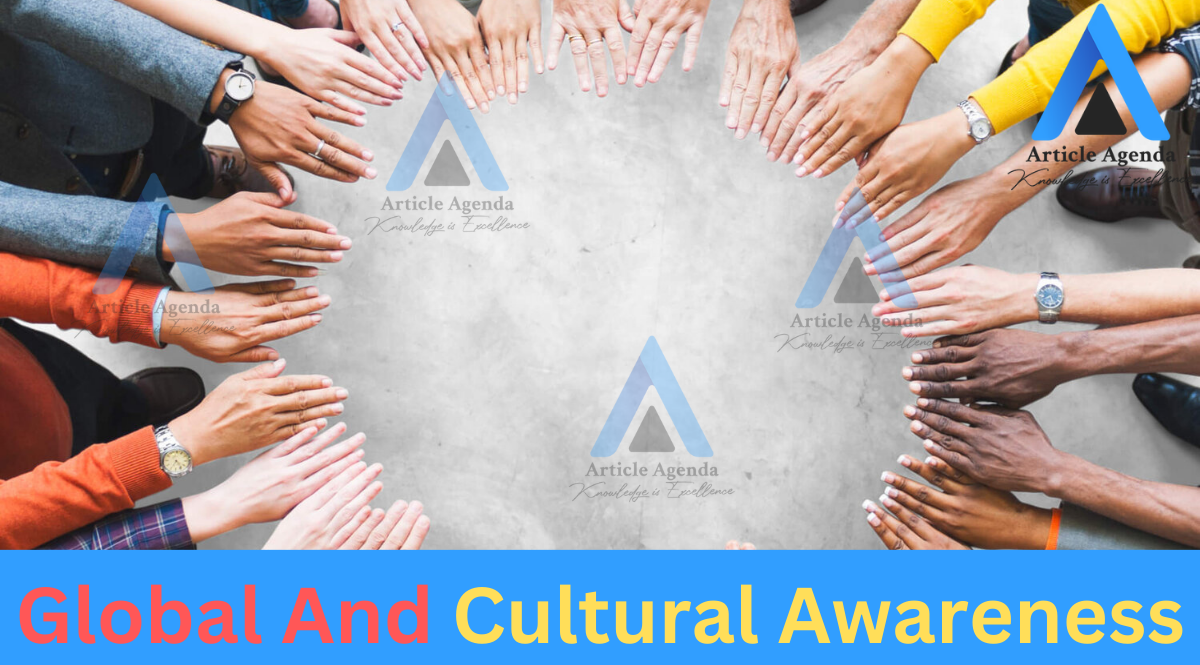What is cultural awareness?
Cultural awareness is the understanding, recognition, and appreciation of different cultures and the diversity of the world we live in. It involves being conscious of the values, beliefs, customs, traditions, and practices of various societies. Awareness goes beyond simply acknowledging the existence of different cultures; it entails actively seeking knowledge and developing an empathetic mindset toward other cultures. It is about recognizing that there is no single “right” way of doing things and embracing the richness and complexity that diversity brings.
Table of Contents
- What is cultural awareness?
- Why is cultural-awareness important?
- Benefits of developing cultural-awareness
- Cultural-awareness in the workplace
- How to develop cultural-awareness
- Cultural-awareness activities and exercises
- Incorporating cultural awareness into education
- Cultural-awareness in international business
- Cultural-awareness training and workshops
- Conclusion
Why is cultural-awareness important?
Cultural awareness is crucial in today’s interconnected world. As we become more globally connected through technology and travel, we will inevitably encounter people from different cultural backgrounds. By developing cultural awareness, we can bridge the gap between cultures, foster understanding, and build more inclusive and harmonious communities.
One of the key reasons cultural awareness is important is because it helps to break down stereotypes and prejudices. When we are ignorant about other cultures, we tend to rely on stereotypes and make assumptions based on limited knowledge. This can lead to misunderstandings, discrimination, and even conflict. By increasing our awareness, we can challenge these stereotypes and develop a more nuanced understanding of other cultures.
Another reason awareness is important is because it enhances communication and collaboration. When we understand the cultural context in which people operate, we are better able to communicate effectively and avoid misunderstandings. Cultural awareness allows us to adapt our communication style and approach to accommodate different cultural norms and expectations. This leads to improved working relationships and more successful collaborations.
Read More : Creating A Pollinator Corridor In your Community
Benefits of developing cultural-awareness
Developing cultural-awareness comes with a host of benefits. Firstly, it promotes respect and appreciation for diversity. By learning about different cultures, we gain a deeper understanding of the world and the people in it. This understanding helps to reduce prejudices and fosters a more inclusive and tolerant society.
Secondly, awareness enhances our problem-solving and critical-thinking skills. When we are exposed to different perspectives and ways of doing things, we are forced to think outside the box and consider alternative solutions. This flexibility and adaptability are valuable skills in today’s rapidly changing world.
Furthermore, awareness can open up new opportunities for personal and professional growth. It allows us to expand our networks and build relationships with people from different backgrounds. This can lead to new business partnerships, collaborations, and career prospects. Moreover, it enriches our personal lives by exposing us to new ideas, cuisines, art forms, and traditions.

Cultural-awareness in the workplace
Cultural-awareness is particularly important in the workplace, where employees from diverse backgrounds come together to achieve common goals. In a globalized economy, many companies operate in multiple countries and interact with clients, customers, and colleagues from different cultures. Without cultural-awareness, misunderstandings can arise, leading to decreased productivity and potentially damaging relationships.
In a culturally aware workplace, employees are more likely to feel valued and included. This leads to higher employee satisfaction, engagement, and retention. Moreover, cultural diversity in the workplace can foster innovation and creativity. When people from different cultural backgrounds come together, they bring unique perspectives and ideas, which can lead to more innovative problem-solving and decision-making.
To promote cultural-awareness in the workplace, organizations should provide diversity and inclusion training programs. These programs can educate employees about different cultures, promote empathy, and develop cross-cultural communication skills. It is also important for organizations to create a culture of respect and appreciation for diversity, where employees feel comfortable expressing their cultural identities and sharing their perspectives.
How to develop cultural-awareness
Developing cultural-awareness is an ongoing process that requires curiosity, openness, and a willingness to learn. Here are some steps you can take to develop cultural-awareness:
1. Educate yourself: Read books, watch documentaries, and listen to podcasts that explore different cultures. Familiarize yourself with the history, customs, traditions, and values of various societies.
2. Engage with diverse communities: Attend cultural festivals, events, and exhibitions. Join community groups or organizations that promote cultural diversity. Engage in conversations and build relationships with people from different cultural backgrounds.
3. Travel: Traveling allows you to experience firsthand the richness and diversity of different cultures. Immerse yourself in the local customs, try new foods, and learn about the local traditions.
4. Be open-minded: Be open to new ideas and perspectives. Challenge your own biases and assumptions. Seek out opportunities to engage in conversations with people who have different opinions and worldviews.
5. Learn a new language: Learning a new language can greatly enhance your cultural-awareness. Language is deeply intertwined with culture, and by learning a new language, you gain insights into the values, beliefs, and ways of thinking of a particular culture.
Cultural-awareness activities and exercises
Some various activities and exercises can help develop cultural-awareness. Some examples include:
1. Cultural exchange programs: Participate in cultural exchange programs where you can live with a host family from a different culture. This immersive experience allows you to learn firsthand about their way of life and develop a deeper understanding.
2. Cross-cultural simulations: Engage in simulations that replicate cross-cultural interactions. These simulations allow you to experience the challenges and complexities of navigating different cultural norms and expectations.
3. Cultural competency workshops: Attend workshops that focus on developing cultural competency. These workshops provide practical tools and strategies for navigating cultural differences and promoting inclusive practices.
4. Cultural immersion experiences: Engage in activities that allow you to immerse yourself in a different culture. This could include cooking classes, dance workshops, or art sessions that showcase the traditions and practices of a particular culture.
Incorporating cultural awareness into education
Education plays a vital role in developing cultural-awareness among young people. By incorporating cultural-awareness into the curriculum, schools can help students develop a global mindset and foster a sense of empathy and respect for diversity.
One way to incorporate cultural-awareness in education is through multicultural literature. By reading books from different cultures, students can gain insights into the experiences and perspectives of people from diverse backgrounds. This not only expands their knowledge but also promotes empathy and understanding.
Another approach is to organize cultural exchange programs where students have the opportunity to interact with students from different cultural backgrounds. This allows them to learn firsthand about different cultures, develop friendships, and challenge stereotypes.
In addition, schools can invite guest speakers from different cultures to share their experiences and promote dialogue. This exposes students to different perspectives and helps to create a more inclusive and tolerant learning environment.
Cultural-awareness in international business
In today’s global economy, cultural-awareness is essential for success in international business. When conducting business with people from different cultures, it is important to be aware of cultural norms, communication styles, and business practices.
Cultural-awareness helps to build trust and rapport with international clients and partners. It shows that you respect and value their culture, which can lead to stronger business relationships and increased opportunities for collaboration.
To navigate cultural differences in international business, it is important to do your research and learn about the cultural etiquette and business practices of the country you are dealing with. This includes understanding concepts such as hierarchy, indirect communication, and the importance of building personal relationships.
Furthermore, it is crucial to adapt your communication style to accommodate different cultural norms. This may involve using more formal language, being mindful of non-verbal cues, and being patient and flexible in negotiations.
Read More : Will Virtual Reality HealthCare Services Take Off In
Cultural-awareness training and workshops
Cultural-awareness training and workshops are valuable tools for individuals and organizations looking to enhance their cultural-awareness. These programs provide participants with the knowledge, skills, and strategies to navigate cultural differences effectively.
Cultural awareness training typically covers topics such as cultural values and beliefs, communication styles, non-verbal cues, and business etiquette. It also provides participants with practical tools for building cross-cultural relationships and resolving conflicts that may arise due to cultural differences.
Workshops often incorporate interactive activities, case studies, and role-plays to simulate real-world scenarios. This allows participants to practice their cultural-awareness skills in a safe and supportive environment.
Conclusion
In our increasingly interconnected world, cultural-awareness is a skill that is essential for success and harmony. By developing cultural-awareness, we can break down stereotypes, foster understanding, and build inclusive communities. It is important to recognize the benefits of cultural-awareness in various aspects of life, including the workplace, education, and international business. By taking proactive steps to develop cultural awareness, such as educating ourselves, engaging with diverse communities, and participating in cultural activities, we can contribute to a more tolerant and empathetic society.
Latest Post :
-
Smart Home Appliances in the UAE: Revolutionizing Modern Living
The UAE has long been recognized as a hub for innovation and technological advancement, and the adoption of smart home appliances is no exception. As the nation embraces the concept of smart homes, residents are experiencing a transformation in their daily lives, characterized by increased convenience, efficiency, and sustainability. This article explores how smart home…
-
(Artificial Intelligence) AI and ML (Machine Learning) : Transforming the Future
Artificial Intelligence (AI) and Machine Learning (ML) are two of the most transformative technologies of our time. They are reshaping industries, driving innovation, and opening up new possibilities in ways previously unimaginable. This article explores the fundamentals of AI and ML, their applications, and their profound impact on various sectors. Understanding Artificial Intelligence (AI) What…
-
Digital Marketing Services: Transforming Your Business in the Digital Age
In today’s digital-first world, businesses must leverage digital marketing services to remain competitive, attract customers, and drive growth. Digital marketing encompasses a broad range of tactics and strategies aimed at promoting products or services through digital channels. This article delves into the various types of digital marketing services available, their benefits, and how businesses can…






Hello there, just became aware of your blog through Google, and found that it is really informative.
I am gonna watch out for brussels. I will be grateful if you continue this in future.
Many people will be benefited from your writing. Cheers!
Escape roomy lista
Very interesting topic, regards for putting up..